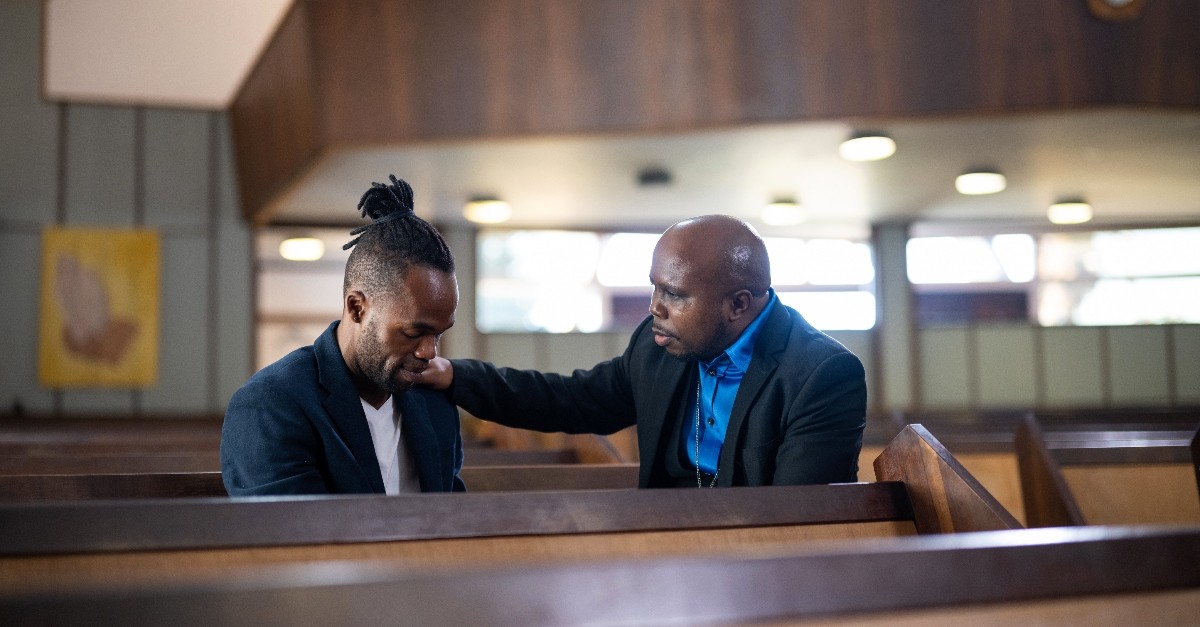
As we think about 2025, one thing is certain for this year. Being a pastor is not getting any easier. As the culture and our society shift, the challenges pastors face seem to be growing. Doing this job well will require more help and dependence on the Holy Spirit. If you are a pastor, take those words to heart because here are some challenges you will face in 2025.
1. Declining Church Attendance
I was glad when they said unto me, Let us go into the house of the Lord. - Psalm 122:1
People don’t attend church at the rate they used to. Multiple studies have borne out this fact. This is not a problem just among Christians, this spreads across all religions. According to Gallup, only 30% of Americans attend a religious service on a weekly basis or nearly every week, down from 44% two decades ago. Since people are not showing up as much, this forces pastors to consider why there are fewer people interested in coming to church than there used to be. Beyond that, we must consider if there is a role the church is playing in the decline of church attendance. Blaming the culture is easy, but maybe this requires a lot more introspection. Clearly, there is something missing that is driving people away, and if we are going to win people back, then pastors need to figure this out.
Photo Credit: ©GettyImages/Martine Severin

2. The Social & Justice Dilemma
Social issues are real in our society. The challenge many pastors face is how do they address them while keeping the congregation centered on Christ? For far too long, many have either overlooked them or not understood how these things affect their congregants. We must recognize that church members are not monolithic in their points of view and not realizing this can create further divides within a church.
It is foolish to believe that all congregants are going to respond the same way to all social issues. Even with more challenging issues like poverty, race or even what some deem pariahs like CRT and DEI, people will view these issues differently. Pastors cannot simply ignore the concerns of people in their congregation, because doing so can dismiss segments of the congregation.
For every social or justice issue, there are people in the congregation who may never say a word, but they are concerned about them and have an opinion about it. Trust me, they all don’t agree. The challenge is it is far too easy to throw these issues away and treat them like they don’t matter or are not that important. After all, shouldn’t we just point people to Jesus? While the answer is yes, we must do so by listening to the concerns of those who may wrestle with these issues. Failure to do so means that you are not just throwing away the issue, you are potentially throwing away your member. There must be a willingness to listen to the hearts of your members and come to a Biblical solution to the social and justice issues of the day.
“Woe to you, teachers of the law and Pharisees, you hypocrites! You give a tenth of your spices—mint, dill and cumin. But you have neglected the more important matters of the law—justice, mercy and faithfulness. You should have practiced the latter, without neglecting the former. - Matthew 23:23
Photo Credit: ©iStock/Getty Images Plus/PixelCatchers

3. Biblical Illiteracy
There is an overarching problem that lives in the church today. Many Christians don’t know their Bible and many don’t even read it. According to a Barna study, 75 percent of US adults read the Bible once a week or less. This issue is prevalent in the church and it becomes a problem because how can you develop a biblical worldview if you never read your Bible? Sadly, I have been in churches where there is no encouragement, even from the leadership, to prioritize the importance of reading and studying the Bible. They may emphasize coming to church or giving, but the consistent reading and studying of God’s word is often an afterthought. I am not saying congregants don’t have a role to play, but there should be encouragement coming from the leadership of the church as well.
Do your best to present yourself to God as one approved, a worker who does not need to be ashamed and who correctly handles the word of truth. - 2 Timothy 2:15
Photo Credit: ©GettyImages/B-C-Designs

4. Navigating Post-Election Fallout
If you think everyone in your congregation is happy about the results of the election, you are sadly mistaken and misinformed. The voices may be silent, but there are members in your church that have concerns over the incoming administration. However, because politics has become so divisive, many members are fearful to voice their concern over fears of backlash. This is an indictment of the church, not of politics.
The narrative among many in the evangelical community is akin to this. A vote for Republicans is a vote for God, and a vote for Democrats is a vote for Satan. Not only is this not true, but can you see how this creates tension among your members? Even if you don’t think so, this exists among your congregation, and people who may have voted differently need to feel they are welcome in your church. Anything other than this is divisive and sinful.
In John 17, Jesus prayed we would all be one. We must recognize when he prayed this that political unity was not a precursor to spiritual unity. He wanted the world to know that God had sent him. This does not happen because of how you vote, but how we love each other regardless of how we voted. This is an enormous challenge for all pastors, but you must recognize the gospel is at stake, so navigating this is necessary.
My prayer is not for them alone. I pray also for those who will believe in me through their message, that all of them may be one, Father, just as you are in me and I am in you. May they also be in us so that the world may believe that you have sent me. - John 17:20-21
Photo Credit: ©Sparrowstock

5. Reaching the Next Generation
He decreed statutes for Jacob
and established the law in Israel,
which he commanded our ancestors
to teach their children,
so the next generation would know them,
even the children yet to be born,
and they in turn would tell their children. - Psalm 78:5-6
Amid all these things happening, there is another generation that we must reach. The whole point of Christianity is to not have it die with you but to raise up the next generation who would carry the message forward. The challenge we are facing with reaching the next generation is they are looking at the way the current generation of leaders and professing followers of Christ are living out their faith. This has not encouraged them but driven them away because what they see is not attractive to them at all. We have crossed a line where the faith we profess and the lives we live do not align. This is called hypocrisy and is not a way to win people to Jesus. Maybe older Christians who have been on this journey for a while just accept this, but this generation is different. Winning them will require a call back to authentic Christian living that reminds people of Jesus. Living like Jesus will cause you to reject many of the actions, speech, and behavior we see by followers of Christ. I can assure you everyone will not be on board with this. However, we should not be completely surprised because the biggest critics of Jesus were those who had the law and should have known better. This has not changed today.
Photo Credit: ©GettyImages/Rawpixel

6. Maintaining Family Balance
I was listening to a pastor speak, and the one thing they mentioned, which is all too common, was the need for ministry-life balance. The demands of the ministry are tough enough, and now you add to the mix a spouse and possibly kids. This takes the need for ministry-life balance to an entirely different level. The heart of this challenge lies in pastors who are hardworking and care about the ones they are called to lead and serve. With this, how do you balance ministry to the church with ministry to your family? If you are a pastor, when was the last time you chose the ministry to your family over the ministry to your church? Many times, we wait until the family or the marriage is falling apart to address the issue. Often, by then, it may even be too late. You may have done well in your ministry life but failed in your family life. This was never God’s intention.
He must manage his own family well and see that his children obey him, and he must do so in a manner worthy of full respect. (If anyone does not know how to manage his own family, how can he take care of God’s church?) - 1 Timothy 3:4-5
Photo Credit: ©Getty Images/Bassitt ART

7. Shifting Cultural Trends
The tides in our culture are shifting. The moral climate is changing, and long-standing norms are slipping away. However, the remedy to shifting cultural trends is not to disengage or retreat. There is a need for men and women to stand up for the truth. However, we must be wise in how we do this. The goal is to stand for truth while carrying out the ministry of reconciliation. It is possible that standing for truth may not be popular and may come with backlash. That’s why it’s not just what you do but how you do it that matters.
But in your hearts revere Christ as Lord. Always be prepared to give an answer to everyone who asks you to give the reason for the hope that you have. But do this with gentleness and respect, keeping a clear conscience, so that those who speak maliciously against your good behavior in Christ may be ashamed of their slander. - 1 Peter 3:15-16
Photo Credit: ©Getty Images/Josearba

8. Financial Pressures
When people stop coming to church, their dollars usually stop coming too. This should not be the reason you want people in the building, but it is a reality if they are not there. There is a delicate balance between encouraging people to attend and encouraging them to give. The way you teach people to give matters. Browbeating people into giving is not the answer, but not sharing the needs you may have as a church or teaching the importance of giving is not the answer either. Ultimately, the responsibility is to teach people about giving, pray and then remember the work is God’s work. Your job is to encourage, his job is to move people to give.
And my God will meet all your needs according to the riches of his glory in Christ Jesus. - Philippians 4:19
Photo Credit: ©GettyImages/MARIAMARTAGIMENEZ

9. Embracing Technology
Have you ever considered that people’s first interaction with your church may not be when they first walk into the building? Some will watch online to decide if they even want to visit. When we were looking for a new church, we watched services online first and then visited the churches we most connected with. Beyond just the online service, you may also need to upgrade the entire online experience. This is a major shift in our culture and how we engage with each other. If we don’t adapt, then we risk leaving large segments of the population unreached. While this is not the traditional way we have done church, this is a reality in the world today.
…I have become all things to all people so that by all possible means I might save some. - 1 Corinthians 9:22b
Photo Credit: ©Getty Images/Iris Images

10. Burnout
With all these issues to address, is it any wonder that many pastors are overwhelmed by the demands of the ministry and are ready to quit? The statistics on pastors leaving the ministry or wanting to leave the ministry vary, but it is a crisis that exists in our church world. While pastors are there to serve, they are only human. This means as a pastor, you must allow yourself time to rest because you are a limited resource. The demands of the ministry will never stop, so you must be intentional in pausing them from time to time. This means training leaders and others to step in to help you accomplish what God has called you to. Failure to do so will lead to faster burnout and less effectiveness. Don’t take my word for it. Listen to the wise words of Jethro, Moses’ father-in-law.
Moses’ father-in-law replied, “What you are doing is not good. You and these people who come to you will only wear yourselves out. The work is too heavy for you; you cannot handle it alone. - Exodus 18:17-18
Parting Word
Pastors, thank you for what you do and I want to leave you with one final encouragement.
Therefore, my dear brothers and sisters, stand firm. Let nothing move you. Always give yourselves fully to the work of the Lord, because you know that your labor in the Lord is not in vain. - 1 Corinthians 15:58
Photo Credit: ©Getty Images/4maksym

He is the author of The Pursuit of Purpose, which helps readers understand how God leads them into his will, and the author of The Pursuit of Victory: How To Conquer Your Greatest Challenges and Win In Your Christian Life. Clarence is also committed to helping 10,000 people learn how to study the Bible and has released his first course, Bible Study Basics, to achieve that goal. To learn more about his ministry and resources, please visit clarencehaynes.com.
Originally published Monday, 16 December 2024.
